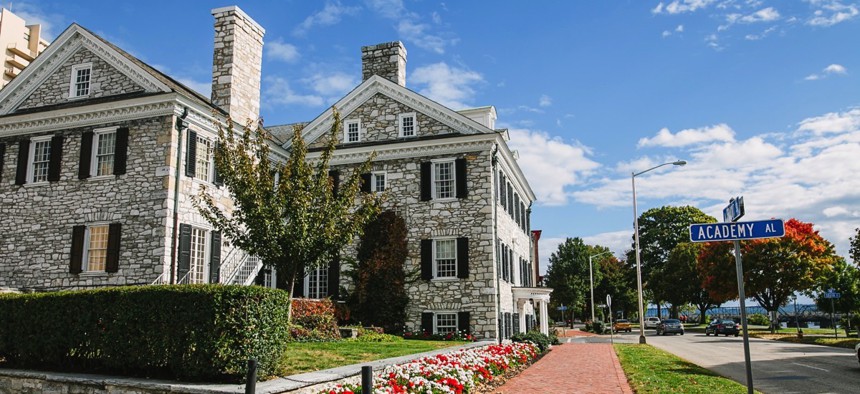Nonprofit Helps Upgrade Harrisburg's Ailing IT; Disgraced Florida Mayor's Mysterious Charity

Harrisburg, Pennsylvania
Also in our State and Local Daily Digest: A bill undermining Michigan's labor unions?; a federal mining dispute in Minnesota; and a California city gets a transportation facelift.
HARRISBURG, PENNSYLVANIA
COMPUTER UPGRADES | Following a computer system crash earlier this year that left city employees without access to email and shared documents, a nonprofit that oversees public money has agreed to give Harrisburg $250,000 to help pay for IT upgrades. The city is still recovering from a financial debacle involving massive amounts of debt, much of it tied to a troubled trash incinerator project. Meanwhile, long-time former mayor, Stephen Reed, faces a raft of criminal charges that allege he stole historical artifacts purchased by the city. The nonprofit that issued the grant, Impact Harrisburg, had $13 million at its disposal, set aside from the sale of the incinerator and the long-term lease of city parking assets. "We had a mayor who used a typewriter for 28 years," said Impact Harrisburg board member Gloria Martin Roberts. "I don't know how much of a priority it was to upgrade computers." [PennLive.com]
HOMESTEAD, FLORIDA
CORRUPTION | Mystery abounds in this case of a disgraced mayor—convicted of two counts of public corruption in 2014—the death of his late wife, and a dubious charity. In an obituary for his wife, Donna Bateman, the former Mayor Steven Bateman asked that, in lieu of flowers, donations be sent to the Autism Resource Center, an organization few had ever heard of. Upon investigating, the Miami Herald discovered that the Center isn’t registered with the IRS, was administratively dissolved by the state in 2015 and has as its president and registered agent the man who was Steven Bateman’s campaign treasurer in 2011. The checks were to be sent to Bateman’s niece in a Suburb of Orlando. They were then routed to a bank in Homestead. The money trail goes cold from there, and it’s unclear how much money was even “donated.” [Miami Herald]
LANSING, MICHIGAN
CONTRACTS | A “Worker’s Choice” bill would allow employees in certain unionized workplaces to negotiate their own contracts if passed, but critics argue the legislation undermines labor unions themselves. The choice itself is whether or not to pay dues and remain represented by your union or opt out and negotiate as a free agent. “Unions are arguing that right-to-work laws amount to a taking because, while employees in right-to-work states are not obliged to support a union, these ‘free riders’ are still, by law, represented by unions,” wrote analysts for the Mackinac Center for Public Policy in a blog post. [AMI Newswire]
BOUNDARY WATERS, MINNESOTA
MINING | Twin Metals Minnesota is suing the feds arguing regulators can’t deny the company access to copper ore deposits near Boundary Waters Canoe Area Wilderness. The federal government is considering whether or not to renew TMM’s mineral leases for a proposed, contested copper-nickel mine on the Kawishiwi River, a process that used to be automatic. Instead, the feds asked for public comment on mining’s effects on the Superior National Forest. Ignoring the “non-discretionary renewal” of the leases in favor of a drawn-out process is “effectively thwarting any development of the mineral estate; materially harming the future mining project; and jeopardizing Twin Metals' $400 million investment to date,” the company argued in a statement. [StarTribune]
GROVER BEACH, CALIFORNIA
COMMUNITY DEVELOPMENT | This sleepy, Pacific Coast community, located about 12 miles south of San Luis Obispo, is in the midst of a makeover of sorts, with hopes of attracting new and younger residents. “We want to be a young, hip city, giving people opportunities to live near the beach,” said Mayor John Shoals. Aiming to achieve that goal, the city is carrying out a major road repair program while also advancing plans for a beach lodge and conference center and upgrades at a local Amtrak station. Shoals explained: “We’re really thinking this investment on the part of the city will help spur private investment elsewhere.” [The Tribune]

NEXT STORY: Sidewalk Labs’ Role in Columbus Smart City Program Appears Limited For Now





